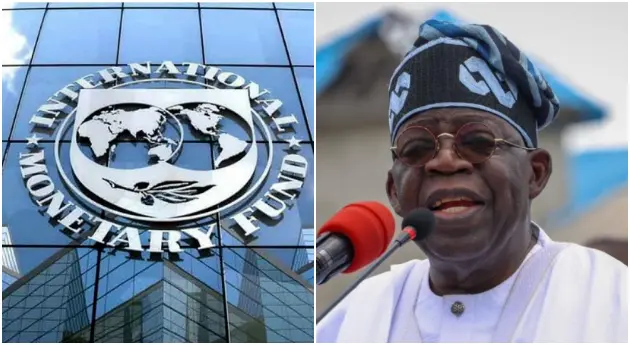The International Monetary Fund (IMF) has called on the Federal Government of Nigeria to pay immediate attention to food insecurity in the country to avert the looming food crisis.
The IMF’s position is coming less than 24 hours after governors asserted that Nigeria must go into production if it must get the people out of the current hardship.
At the 16th Edition of the Leadership Annual Conference and Awards, the IMF made its position known in its End-of-Mission statement issued after the completion of the IMF Staff 2024 Article IV Mission to Nigeria.
This is even as former Anambra State governor and 2023 presidential candidate of Labour Party, LP, Mr Peter Obi, who decried the hardship in the country, said he was not desperate to be president but “desperate to make Nigeria work.”
Also, former Deputy Governor (Financial Stability) of the Central Bank of Nigeria, CBN, Professor Kingsley Moghalu, advocated the sale of government assets to raise funds, totalling $18-20 billion, which could be channelled into bolstering foreign reserves to stabilize forex and overcome economic woes.
Read Also: SERAP Drags Tinubu To Court Over Missing $3.4B IMF Loan
However, President Bola Tinubu urged Nigerians to be patient, assuring them that his economic reforms will stabilize the country.
President Tinubu, Obi and Moghalu also spoke at the Leadership annual event, which served as a stage for political figures, statesmen and other dignitaries to highlight the importance of increasing productivity as a means of elevating Nigeria from her current state of hardship and steering her toward economic stability and strength.
Echoing the governors, the IMF said addressing food insecurity should be an immediate priority of the Federal Government.
Stating that the new government inherited a difficult economic situation marked by low growth, low revenue collection, accelerating inflation, and external imbalances built up over the years, IMF said: “Addressing food insecurity is the immediate priority. The recent approval of a well-targeted and effective social protection system is an important step towards addressing food insecurity in Nigeria, and its implementation will be crucial.”
It said the decision by the Monetary Policy Committee, MPC, to further tighten monetary policy would help contain inflation and pressures on the Naira.
The statement said an IMF team, led by Axel Schimmelpfennig, IMF Mission Chief for Nigeria, visited Lagos and Abuja from February 12 to 23, 2024, to hold discussions for the 2024 Article IV Consultations with Nigeria.
It said the team met with the Minister of Finance and Coordinating Minister of the Economy, Wale Edun, and Governor of the CBN, Olayemi Cardoso and some other senior government and CBN officials, mnisters and representatives of sub-nationals, private sector, and civil society organisations, CSOs.
The statement said that at the end of the visit, Schimmelpfennig issued the following statement:
“Nigeria’s economic outlook is challenging. Economic growth strengthened in the fourth quarter, with Gross Domestic Product, GDP, growth reaching 2.8 per cent in 2023. This falls slightly short of population growth dynamics.
“Improved oil production and an expected better harvest in the second half of the year are positive for 2024 GDP growth, which is projected to reach 3.2 per cent, although high inflation, Naira weakness, and policy tightening will provide headwinds.
“With about eight per cent of Nigerians deemed food insecure, addressing rising food insecurity is the immediate policy priority. In this regard, staff welcomed the authorities’ approval of an effective and well-targeted social protection system.
“The team also welcomed the government’s release of grains, seeds, and fertiliser, as well as Nigeria’s introduction of dry-season farming.”
Schimmelpfennig said recent improvements in revenue collection and oil production are encouraging.
He said Nigeria’s low revenue mobilisation constrains the government’s ability to respond to shocks and to promote long-term development.

